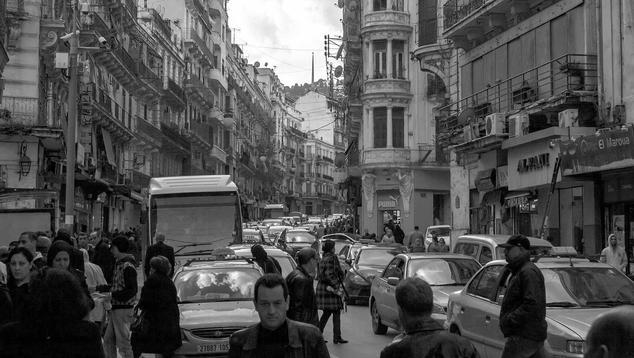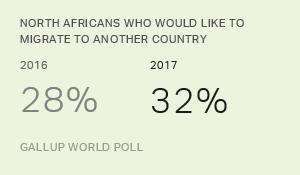Story Highlights
- 12% of Algerians are "thriving"
- 23% say their local economy is improving
- 61% say it is a bad time to find a job where they live
WASHINGTON, D.C. -- Ahead of recent protests that ultimately prompted Algerian President Abdelaziz Bouteflika to step down on Tuesday, Algerians rated their lives worse than they have at any point in the past decade. The percentage of Algerians who rated their lives positively enough to be considered "thriving" dropped to a new low of 12% in the latter half of 2018.
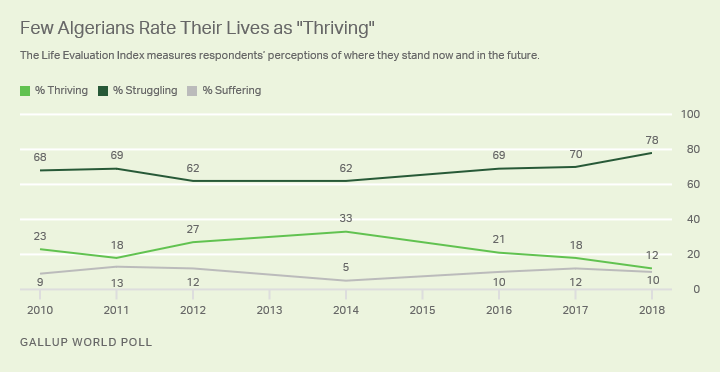
Gallup asks adults worldwide to evaluate their lives on the Cantril Self-Anchoring Striving Scale, where zero represents the worst possible life and 10 represents the best possible life. Gallup classifies people as "thriving" if they rate their current life a 7 or higher and their life in five years an 8 or higher, and "suffering" if they rate both their current and future life situations a 4 or lower. Those in the middle are "struggling."
The percentage of Algerians who are thriving has dropped each year since 2014, when it was at a record-high 33%. Within the same period, the percentage who are struggling has risen from 62% to 78%. These worsening life evaluations followed several austerity measures by the government, including cuts to public spending that began in 2015 and intensified after cuts to subsidies for essential goods in 2017.
The public spending cuts spurred Algerian teachers and doctors to take to the streets in early 2018. The Algerian government then backtracked on cuts to subsidies for consumer goods in the runup to the presidential election, originally planned for April 2019, in an unsuccessful effort to head off protests. During the course of the unrest, the goal of demonstrators shifted to opposition to Bouteflika sitting for a fifth term as Algeria's president. In response to continued demonstrations, Bouteflika initially withdrew from the election and subsequently vowed to step down from the presidency.
Austerity Measures Weigh on Algeria's Local Economies
The Algerian government's efforts to reform the economy and trim foreign debt through austerity coincided with a negative turn in attitudes toward the country's local economies and labor markets. Before the austerity measures, 48% of Algerians in 2014 said the economy in the area where they lived was getting better. Following the introduction of austerity measures, that percentage fell to 24% and has stayed at or below that point since.
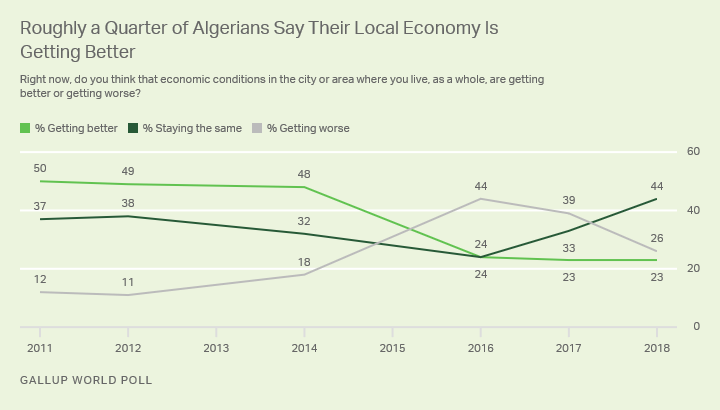
The percentage of Algerians who said their local economy was getting worse jumped from 18% in 2014 to 44% in 2016, though this figure has since declined. However, this doesn't mean Algerians see their local economy as improving -- instead, they have shifted toward saying there has been no change at all, with the percentage saying their local economy is "staying the same" having increased to 44% last year, up from 24% in 2016.
The changing conditions also have shaken Algerians' outlook for the job market. One in five Algerians (20%) in 2018 said it was a good time to find a job -- less than half of the 43% who said so in 2014. The cuts to public spending have resulted in public employees having less money to inject into the economy, resulting in the creation of fewer jobs since the austerity measures were enacted.
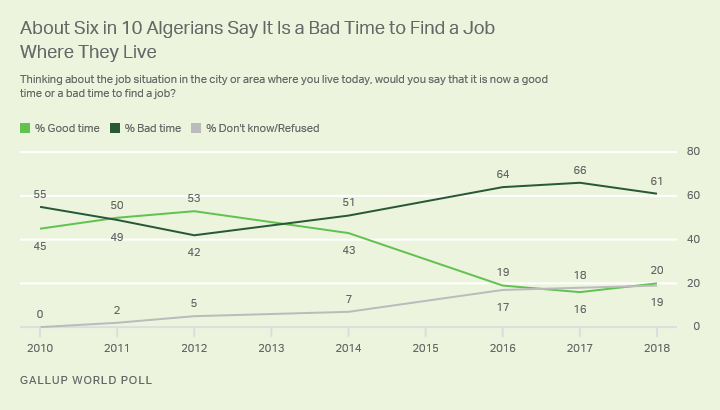
Bottom Line
As the scheduled election approached, Algerians were primed for change after nearly four years of austerity. Public workers, teachers and medical workers -- those most directly affected by the government's spending cuts -- were the first to take to the streets, followed by others who likely sensed change was possible. The demonstrations have been at least partially successful, with Bouteflika stepping down as president.
Bouteflika's forced decision opens the door to substantial political uncertainty, and Algerians will continue to face considerable economic difficulties. The country's dependency on income from oil sales and the continued depressed price of the commodity have shown the need for reform of the Algerian economy. However, contentious efforts to do so have substantially contributed to political instability. The risk of additional upheaval will continue to be a challenge for any new leader's attempts to enact sudden and drastic economic reform in the near future.
For complete methodology and specific survey dates, please review Gallup's Country Data Set details.
Learn more about how the Gallup World Poll works.
